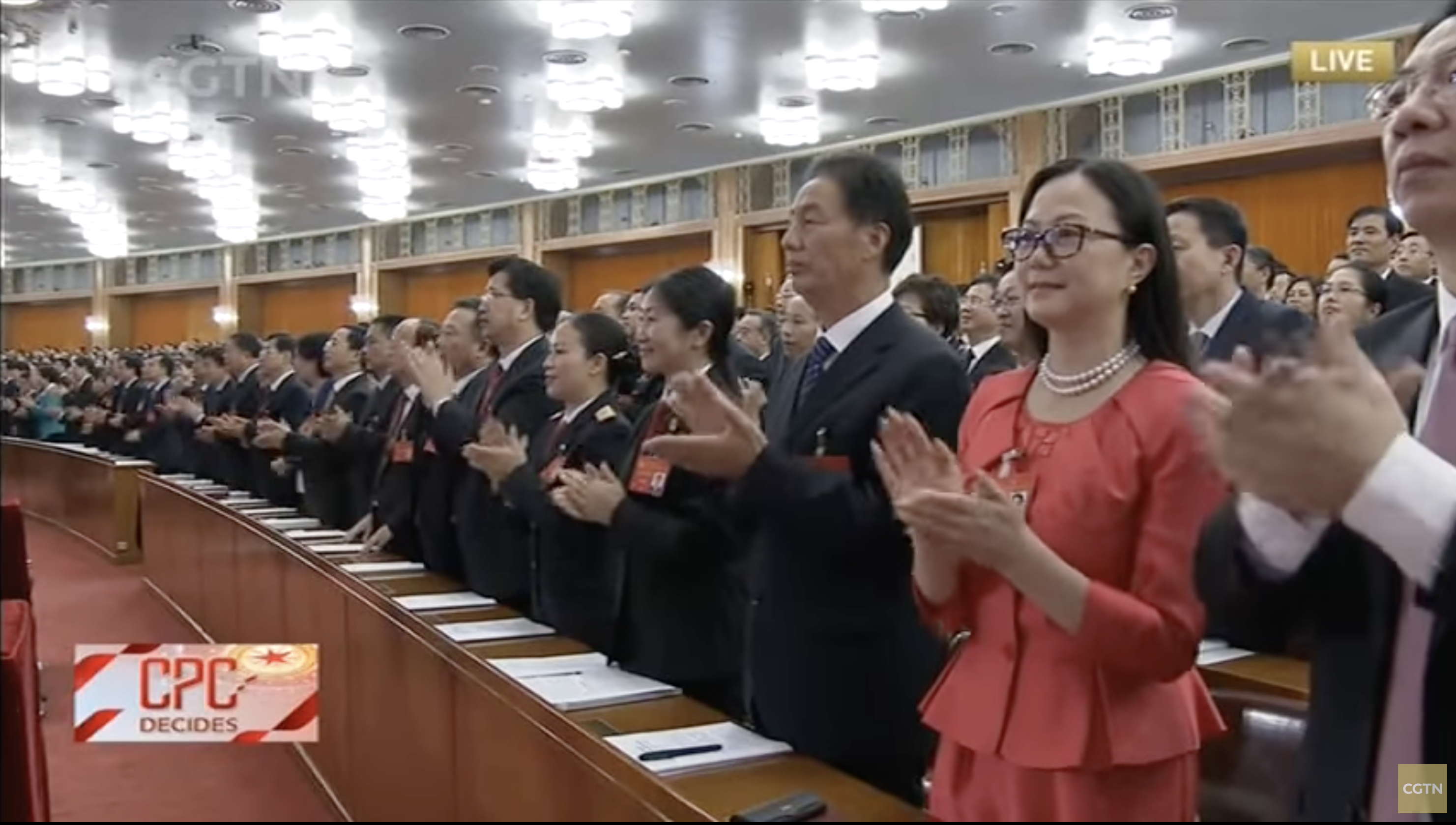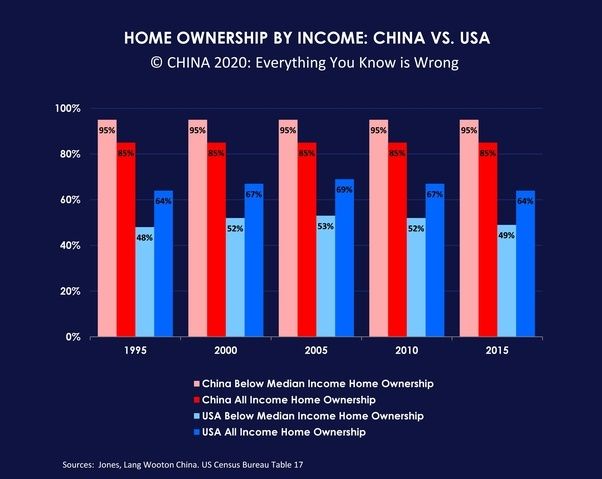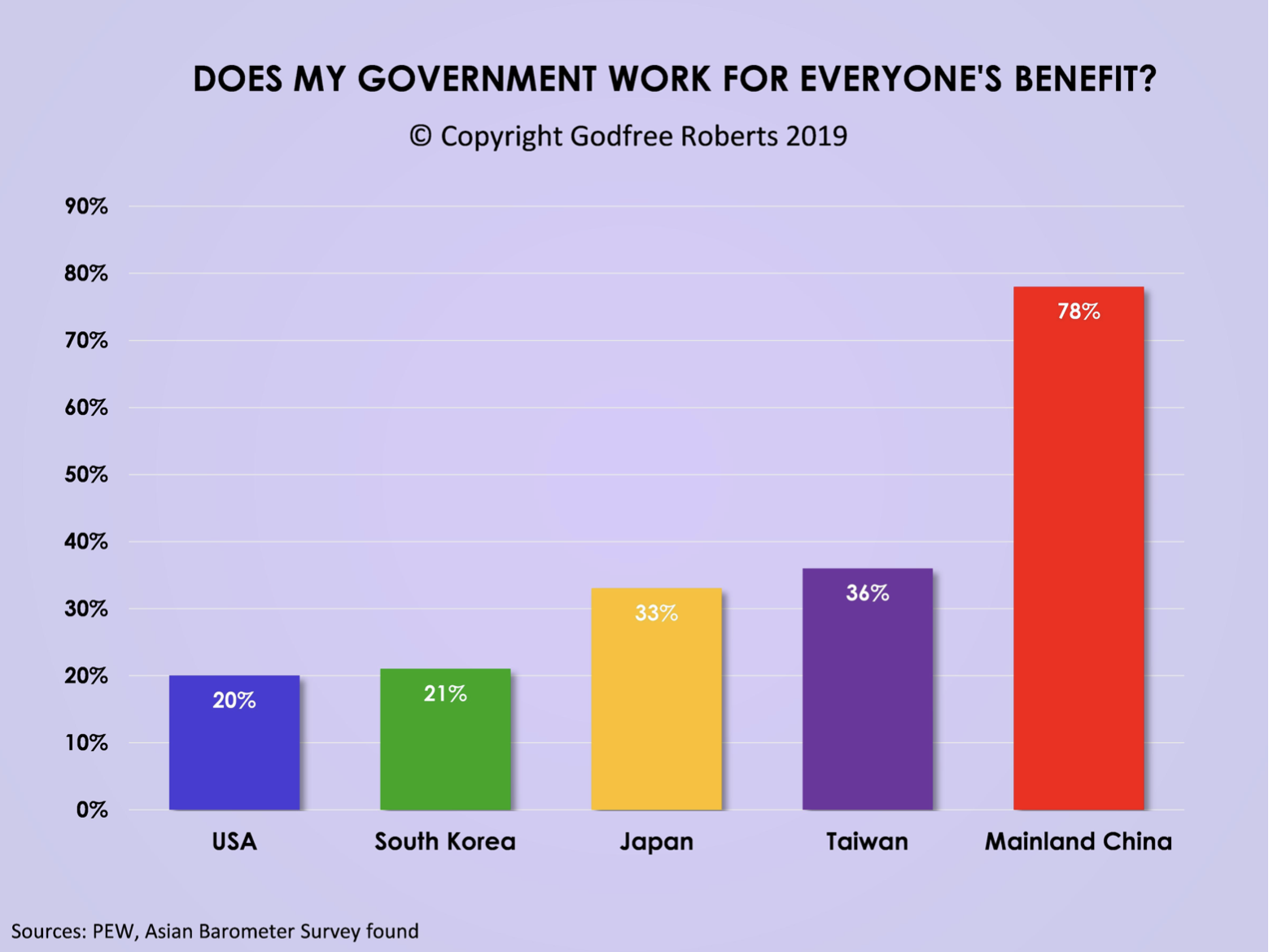by Godfree Roberts
OpEds
THE CHINESE COMMUNIST PARTY
And Rotary International: Some Salient Facts
 China and the US are one-party states. China, a socialist state, permits limited capitalism (Huawei) and disallows factions in government. America, a capitalist state, permits limited socialistic solutions to specific problems (Medicare), but not real socialism, and permits factions (Democrat and Republicans) in government.
China and the US are one-party states. China, a socialist state, permits limited capitalism (Huawei) and disallows factions in government. America, a capitalist state, permits limited socialistic solutions to specific problems (Medicare), but not real socialism, and permits factions (Democrat and Republicans) in government.
Our Capitalist Party exists for its own benefit (that is, to serve the ultra-rich, about 0.001% of the population) while their Communist Party is a service organization, like Rotary International. If we imagine the effects on America if our government had been answerable to Rotary International for the past seventy years then we can imagine why China has thrived.
Verifiable merit directs who can join the CCP
It is as difficult to join the CCP as it is to become a successful capitalist. Admission is highly restrictive and the process takes years. Candidates must explain their motives for applying; list personal shortcomings along with detailed personal, financial and political information about themselves and their families; include recommendations from two Party members; and supply character references from two non-relatives who will be accountable for them for life. During the application process they attend weekly classes in Party history and ideology and participate in volunteer activities.
Constant malicious propaganda tries to deny and obfuscate the immense accomplishments of the Chinese people. The Western ruling elites, increasingly worried about their sharp drop in legitimacy at home, work to block any possible non-capitalist alternatives. That fear has been in their hearts since the rise of the Soviet Union.
Three-quarters of university graduates apply but a tenth succeed. “I was very excited,” said Allen Lin, 1 a twenty-three-year-old college senior who credits his admission to his high grades, service to student government and assistance to classmates, “Joining the Party is not easy–of the forty students in my class, only five were admitted.” Eric X. Li, a Fudan PhD multi-millionaire VC whose advocacy of Chinese governance has won world renown, has been rejected three times. Xi Jinping overcame seven rejections before being admitted. Jack Ma, a teenage student at a second-tier teachers' college, was admitted immediately.
“I promise to bear the people’s hardships first and enjoy the benefits last.”
New members swear an oath, “I promise to bear the people’s hardships first and enjoy the benefits last.” 300,000 Party members gave their lives in the war of liberation. Mao lost his wife, a son, two brothers, a sister and three nephews. Premier Zhou Enlai lost all his children and the first president, Zhu De, saw his pregnant wife tortured to death and her decapitated head nailed to the city gate.

The Party’s fundamental responsibility is creating policies and mobilizing public support for them. Many Party members will do little more than conduct door-to-door surveys on rainy Sundays or lead local cleanups, but some will head huge corporations and others will be officials, university professors or journalists. All ninety million will be able to explain new government policies to friends and workmates (though they may find this boring) so that everyone knows where the country is going and how to participate.

Beijing, China. 25th May, 2020. The second plenary meeting of the third session of the 13th National People's Congress (NPC) is held at the Great Hall of the People in Beijing, capital of China, May 25, 2020. Credit: Ju Peng/Xinhua/Alamy Live News
Their motto is, “Serve the People” and all 90,000,000 current members are volunteers who contribute $1,000,000,000 in annual dues and billions of volunteer hours leading China towards dàtóng.
The Party’s ability to mobilize is impressive. One night in 2010 a Shanghai high-rise fire killed fifty-eight people. The Minister of Public Security arrived from Beijing at two am and, by dawn, had coordinated twenty-five fire stations and a hundred fire trucks, a thousand firefighters, police, hospitals, finance, insurance, housing, donations, counseling, criminal investigations and local schools. Forty-eight hours later, state-owned insurers began compensating families for lost property and $250,000 for each death. A week later, Shanghai mayor Han Zheng admitted, “We are responsible for poor supervision of the city's construction industry which caused the fire.” He implemented new building codes, fired or demoted thirty officials (of whom twenty-two were indicted and most went to prison, two for sixteen years). The contrast with London’s 2017 Grenfell Tower fire is stark.
It appears that most folks are happy with the course they’ve plotted:

Members don’t benefit financially from participation and half have at least a junior college degree, forty percent are women, one-third are ‘exemplary farmers, herdsmen and fishermen,’ a quarter are white-collar workers, a sixth are retirees. Ten percent are ethnic minorities (ethnic minorities make up 8.5% of China’s population) and seven million civil servants are Party members.
Two-thirds of Party leaders have graduate degrees and one-fourth have PhDs.
Members vote democratically–on a one man, one vote basis–for senior Party and government appointments.
Surveys suggest that the Chinese are pleased with the Party’s supervision of their government.
1 Membership in the Communist Party of China: Who is Being Admitted and How? | JSTOR Daily. By: R.W. McMorrow. December 19, 2015
 Godfree Roberts is an Anglo-American expert in Far Eastern affairs. He has been visiting China since 1967 and following its rising fortunes ever since. After receiving his doctorate from UMass, Amherst, he moved to Chiang Mai, Thailand, an hour from the Chinese border, and began trying to understand the country's phenomenal success. Godfree serves as Publisher of the weekly newsletter Here Comes China!, and is the author of Why China Leads the World: Talent at the Top, Data in the Middle, Democracy at the Bottom. His articles are widely published in the alternative press, including Vineyard of the Saker, The Greanville Post, The Unz Review, China Rising, and other leading anti-imperialist publications.
Godfree Roberts is an Anglo-American expert in Far Eastern affairs. He has been visiting China since 1967 and following its rising fortunes ever since. After receiving his doctorate from UMass, Amherst, he moved to Chiang Mai, Thailand, an hour from the Chinese border, and began trying to understand the country's phenomenal success. Godfree serves as Publisher of the weekly newsletter Here Comes China!, and is the author of Why China Leads the World: Talent at the Top, Data in the Middle, Democracy at the Bottom. His articles are widely published in the alternative press, including Vineyard of the Saker, The Greanville Post, The Unz Review, China Rising, and other leading anti-imperialist publications.
The views expressed herein are solely those of the author and may or may not reflect those of The Greanville Post. However, we do think they are important enough to be transmitted to a wider audience.
All image captions, pull quotes, appendices, etc. by the editors not the authors.
YOU ARE FREE TO REPRODUCE THIS ARTICLE PROVIDED YOU GIVE PROPER CREDIT TO THE GREANVILLE POST VIA A BACK LIVE LINK.
![]() This work is licensed under a Creative Commons Attribution-NonCommercial 4.0 International License
This work is licensed under a Creative Commons Attribution-NonCommercial 4.0 International License
[premium_newsticker id=”211406″]
Don’t forget to sign up for our FREE bulletin. Get The Greanville Post in your mailbox every few days.
[newsletter_form]







